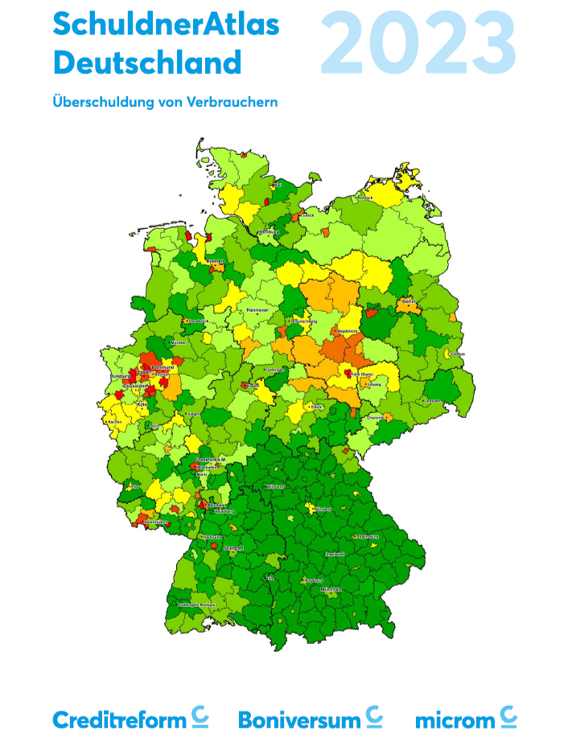Economy · 27. February 2025
The recent rapid increase in the number of bankruptcies also has its good side: Among the companies that had to give up, many were zombie companies that were only able to survive for so long thanks to special circumstances and that damaged the economy.
Economy · 15. January 2025
Corporate insolvencies in Germany are rising for the third year in a row. At the end of 2024, a new record high of 22,400 bankrupt companies was recorded.
Insolvencies · 12. June 2024
Economic development in Europe lost significant momentum in 2023. According to estimates by the EU Commission, the economic area recorded only minimal growth and a weak economic situation overall.
Economy · 30. April 2024
The mood of medium-sized businesses in Germany deteriorated further in spring 2024. This is shown by the current study by Creditreform Wirtschaftsforschung from Neuss, for which around 1,250 small and medium-sized companies were surveyed.
Economy · 15. March 2024
It was only a short interim high - in 2022 after the corona pandemic, the economy in Germany got going again. But with the outbreak of war in Ukraine, all hopes of a lasting recovery had to be buried.
Economy · 15. November 2023
5.65 million citizens over-indebted / “hidden increase” in over-indebtedness / over-indebtedness ratio of 8.15 percent / trend reversal due to persistent inflation and high interest rates / recession as a driver of over-indebtedness
Market Monitor · 25. October 2023
Constricted by bureaucracy, unsettled by the economy and paralyzed by rising costs - Creditreform's current analysis of the economic situation and financing in medium-sized businesses shows very clearly: Companies in Germany are looking bleakly into the near future. They spend a lot of time and energy trying to cope with the general conditions instead of investing resources in further development. How long can this last?
Economy · 31. May 2023
In 2022, the long-feared trend reversal in corporate insolvencies took place in Europe. After the Corona crisis years, in which companies were massively subsidized all over Europe, the reality of the market economy is gradually returning: many companies are not able to cope with the permanent crises in the long run.
Economy · 31. January 2023
A new Creditreform study shows that companies lack knowledge about ESG. The knowledge gap is particularly large when those responsible are in the HR department. So what to do?









